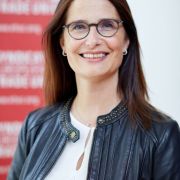European Social Dialogue
European social dialogue is at the heart of European Union governance. It enables the European social partners to help to define European social standards, and is a fundamental part of the European social model.
The ETUC is the only social partner representing workers at European level. The Treaty of Maastricht (1992) guarantees this formal status. Together with the EU-level employers, it is involved in consultation in areas such as employment, social affairs, macroeconomic dialogue, industrial and regional policies.
Dialogue between the European social partners takes place at both cross-sectoral and sectoral levels. The participants in the cross-sectoral dialogue, the ETUC, BusinessEurope (private sector employers), UEAPME (SMEs), and CEEP (public employers), concluded framework agreements on parental leave (1996) and revised in 2009, part-time work (1997) and fixed-term contracts (1999). They were ratified by the Council of Ministers and are now part of European legislation.
The social partners have also concluded autonomous agreements on telework (2002), work-related stress (2004), harassment and violence at work (2007), inclusive labour markets (2010) and on active ageing and an intergenerational approach (2017).
They have also adopted frameworks of action on lifelong development of competencies and qualifications (2002), gender equality (2005) and youth employment (2013).
In July 2015, the EU Social Partners adopted their fifth multiannual work programme (2015-2017). This covers active ageing; reconciliation of work, private and family life and gender equality; mobility and migration; investment and strengthening the industrial base; skills needs in digital economies; active labour market policies; apprenticeships and youth employment; capacity building and better implementation of European social dialogue outcomes.
The ETUC represents workers’ interests in the Social Dialogue Committee, which meets three times a year.
Resource Centre Social Dialogue websites for workers and employers were set up in 2007 to enhance awareness and knowledge of EU social dialogue.





